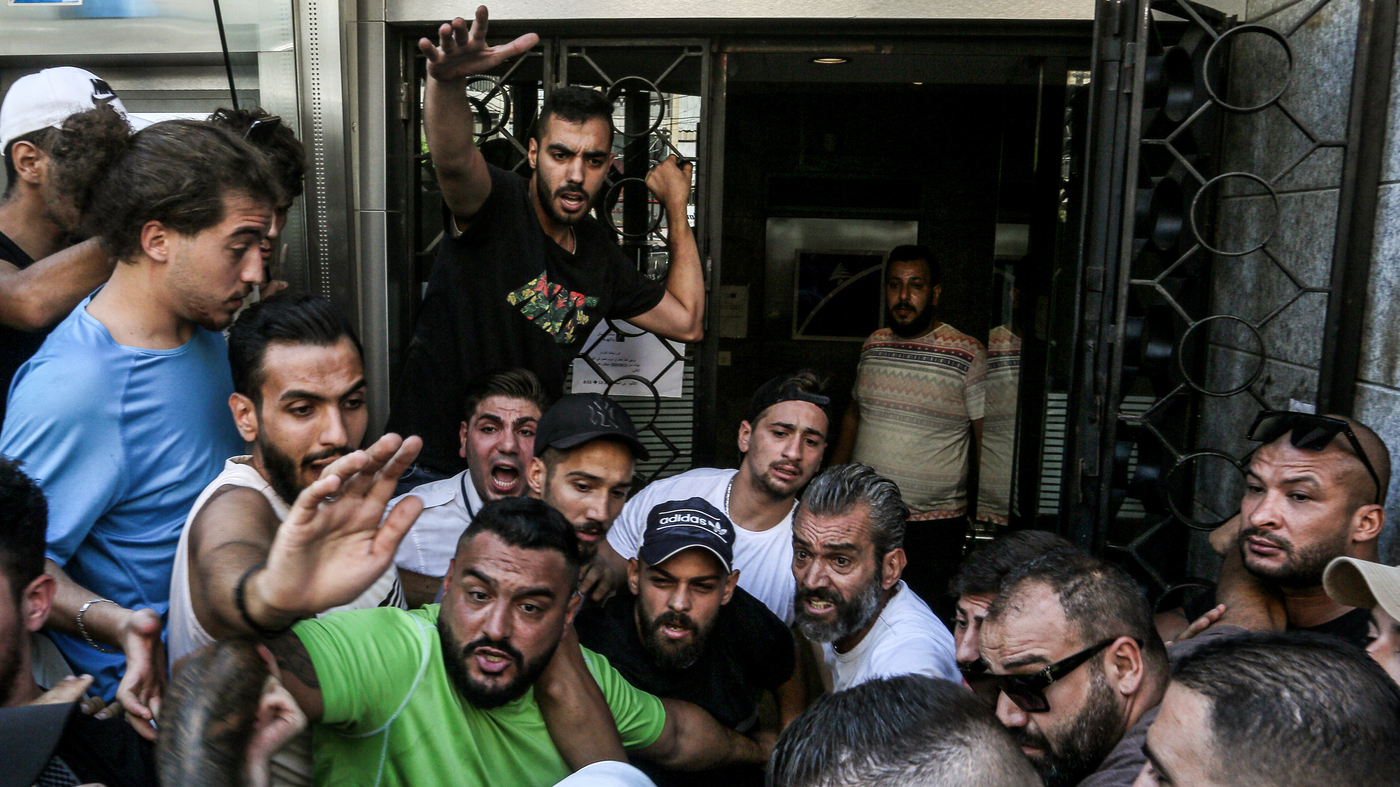The Censorship of the World Bank: The Case of Lebanon’s Banks Robbed by a Ponzi Scheme and the Critics of Money Laundering
There have been many holdups at banks across the country since January and Ms. Hafiz was not the first account holder to use these tactics. In September there was about 12 over the course of the month. Many perpetrators in Lebanon cheered on while they held up banks. Lebanon is experiencing a profound economic crisis. The Lebanese pound has lost over 90 percent of its value, annual inflation in 2021 was over 150 percent, and people are struggling to afford food and electricity. Many feel humiliated when challenged by the institutions, and seeing citizens challenge them has been a good way to get back at them.
But in recent weeks the cheers have quieted into indifference. The robberies were not the start of an organized fight-back but another forced adaptation to our new reality. We may have to rob the bank if we want our savings to remain hostage for three years because of things like the unavailability of medicines and the pitch-Black and potholed roads.
According to the World Bank, the leaders of Lebanon spent decades running the country’s economy like a Ponzi scheme. According to its investigation, politicians and their financiers stripped the public services of their purpose to enrich themselves and others. The report states that Lebanon’s bank owners should have taken losses when the economy collapsed. Instead they froze depositors’ accounts.
TRIPOLI, Lebanon — On a recent weekday in Lebanon’s second-largest city, the atmosphere at a branch of the IBL Bank is tense. Security and police are gathered outside. Soldiers are holding rifles. People are crowding the entrance.
At the IBL Bank, Khaled has the backing of her own relatives and other depositors. A retired soldier is here to lend his support to a woman who has her bank account frozen. “The stink of this corrupt system has affected us all.”
Since then, the country’s politicians and heads of financial institutions have resisted implementing economic reforms — such as laws on money laundering — that would unlock funding from the International Monetary Fund. Critics say one of the reasons for this is because leaving the laws vague has allowed politically well-connected Lebanese to get their money out of the country.
Lebanon bank robbery: I can’t see a greengrocer in my eye, but I can see my grandmother in the eye
A large apartment with high ceilings and colorful tiles is where Khaled lives with her sister. Their voices echo in the rooms as it’s empty. Khaled has been selling furniture, piece by piece, to make ends meet. A small coffee table in the living room is full of cans and vegetables that they emptied from the kitchen fridge prior to selling them.
The family has close to $90,000 in their account according to the bank statements shown by Mohammed. The money was from a house he and his mother sold before the banks froze their deposits.
In the economic collapse, Mohammed lost his job. The lira has lost most of its value since October. Now, the family’s debts are piling up.
“It’s humiliating,” Mohammed says. We have to accept produce from the grocery store on credit. I can’t see the greengrocer in the eye.
Source: https://www.npr.org/2022/12/17/1143142512/lebanon-economy-bank-robbery-savings
A protest by the Cry of the Depositors whose bank robbery victims are locked out to recover their legal rightful heirs
Khaled’s daughter Amina Mohammed, 35, says she and her husband and their three children will be evicted by the end of December if they cannot pay their rent. She’s worried about her mother’s health. Khaled has lost one of her legs to diabetes. Now she has pains in her left leg and doctors have told her she needs an MRI scan and possibly surgery — all things she cannot pay for.
Banks do allow withdrawals of $400 per account per month, plus some Lebanese currency, in a strategy that he says will repay as many as 70% of depositors.
But it does not help those who are in need of more immediate money. Depositors are forming a movement.
Ibrahim Abdallah is a spokeswoman for Cry of the Depositors, a group of people who remember a bank robbery.
The group has lawyers — they too include depositors locked out of their savings — who sometimes offer legal advice to those staging heists on how to protect themselves from prosecution.
At a protest by Cry of the Depositors outside of a hotel where bankers are gathered for an event, he points out a skyscraper he helped sell through his work in real estate.
